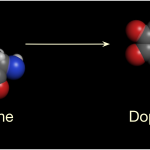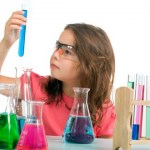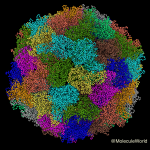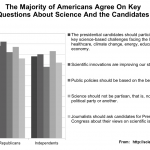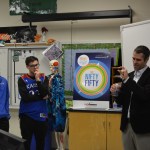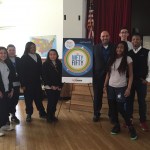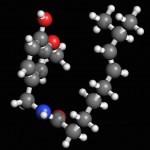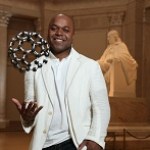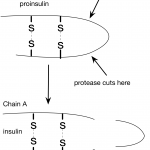Science Education
I had previously mentioned the ScienceDebate ad with the kids asking for a science debate. Here is some local coverage on the story (the ad was made here in the Twin Cities) including an interview with one of the stars, Susanlyn Singroy. (I don't agree with everything she said, but what the heck, she's asking for a debate, and is up for it!)
Here is the coverage.
More about ScienceDebate.org here.
... maybe they'll actually do something about them.
Remember the Democratic and Republican party debates that were held just before that major international meeting about climate change, participated in by every country in the world? Of course you do. Do you remember the candidates' responses to the questions about climate change posed during those debates? No, you don't. Not a single question about climate change, or any other big science issue, was asked.
When we think about the big science issues, climate change is often one of the main topics that comes first to mind. But there are many…
"By night all cats are gray" - Miguel Cervantes in Don Quixote
I've always liked Siamese cats. Students do, too. "Why Siamese cats wear masks" is always a favorite story in genetics class. So, when I opened my January copy of The Science Teacher, I was thrilled to see an article on Siamese cat colors and proteins AND molecular genetics (1).
In the article, the authors (Todd and Kenyon) provide some background information on the enzymatic activity of tyrosinase and compare it to the catechol oxidase that causes fruit to brown, especially apples.…
Homo naledi and the Chamber of Secrets ~ Psychology's Inner Demons ~ Chilesaurus: The One That Went Vegan ~ Neurons Alter DNA All Day, Every Day
Popular science fans may recognize some of these colorful titles from the most recent publication of Discover Magazine's 100 Top Stories of 2015. We at Atheists Talk enjoy a good science-ing now and then, and this Sunday we're going to talk about some of the stories shared by Discover. It's going to be a science smorgasboard extravaganza! Join Brianne Bilyeu, August Berkshire and Maddy Love as they nerd out about the science of 2015.
Listen to the…
Imagine a simple hike in a grassy part of South America. You hear a rattle and feel a quick stab of pain as fangs sink into your leg. Toxins in the snake venom travel through your blood vessels and penetrate your skin. If the snake is a South American rattlesnake, Crotalus terrific duressis, one of those toxins will be a phospholipase. Phospholipases attack cell and mitochondrial membranes destroying nerve and muscle function. Without quick treatment, a snakebite victim may be die or suffer permanent damage (1, 2).
The phospholipase from…
A new paper out in the journal Judgement and Decision Making by Gordon Pennycook, James Cheyne, Nathaniel Barr, Derek Koehler, and Jonathan Fugelsang. The abstract:
Although bullshit is common in everyday life and has attracted attention from philosophers, its reception (critical or ingenuous) has not, to our knowledge, been subject to empirical investigation. Here we focus on pseudo-profound bullshit, which consists of seemingly impressive assertions that are presented as true and meaningful but are actually vacuous. We presented participants with bullshit statements consisting of buzzwords…
I know a lot of you are looking for ideas for science-related children's presents for Christmas or whatever holiday you like to celebrate this time of year. I have a couple of ideas, and hopefully you will add some of your ideas below. Not everything that helps encourage the skills of scientific tinkering is found in a science kit, and I'll provide a few ideas for toys that do this. Also, some of the best science experiments are found by using things that don't come in kits, but by following the advice in books. So I'll suggest a few books as well. Purely science kits or tools are of…
When my parents were young, summer made cities a scary place for young families. My mother tells me children were often sent away from their homes to relatives in the country, if possible, and swimming pools were definitely off limits. The disease they feared, poliomyelitis, and the havoc it wrecked were the stuff of nightmares. Children could wake up with a headache and end up a few hours later, in an iron lung, struggling to breathe.
Poliovirus colored by molecule in Molecule World.
…
It is debate season for the US presidential race. As usual, science is being viewed as a debating point very differently by the two parties, at least so far. The Democratic candidates, yet to actually debate, are currently engaged in dealing policy statements about important scientific issues such as climate change. In previous election cycles, science was brought into Republican primary debates to see which candidate could make the most anti-science statements. This year it is a bit different, with climate science in particular, and one's ability to say something intelligent-sounding about…
I'm on my way to a taping of the Humanist Views with Host Scott Lohman. I do these now and then and have done so since I first moved to Minnesota back when it was still cold here. We'll be talking about science knowledge, and why basic science knowledge is important. We'll also be talking about how to go about evaluating science stories you encounter in the news, or more likely, on your Facebook feed or in other social media.
Pursuant to this, I wrote a blog post that talks about how science stories go out to the general public. I also report on a request I sent out a few days ago to my…
This Nifty Fifty Podcast features, Dr. Loren Anderson, physicist from West Virginia University, speaking to Tuscarora High School about the Milky Way Galaxy, astronomy, massive stars, and his career path to becoming a physics professor. Read the full blog here.
Innovation & Tech Today is a proud media partner of the USA Science & Engineering Festival. Committed to celebrating innovation and investing in our future, the USA Science & Engineering Festival perfectly complements the mission of I&T Today. In addition to covering the Festival in Washington D.C. in 2016, I&T Today is increasing STEM coverage in their new extended education section.
Click here to read "The Latest Developments in STEMtech" featuring speakers from the USA Science & Engineering Festival's upcoming X-STEM Symposium!
Read full blog here.
The American Biology Teacher has hosted a guest editorial by Glenn Branch and Minda Berbeco of the NCSE. The editorial points out that climate science is under a similar sort of anti-science attack as evolution has been for years, though generally with different (less religious) motivations. Also noted is the problem of fitting climate change into the curriculum, especially in biology classes. Indeed, biology teachers are already having a hard time getting the standard fare on the plate. In recent years, for example, the AP biology curriculum has jettisoned almost everything about plants…
This Nifty Fifty Podcast features Dr. Len Annetta speaking about how his background growing up poor and how he’s now creating the next generation of creative science and technology leaders through serious games. Dr. Annetta is speaking to Center City Public Charter School in Washington, D.C. Read full blog here.
To have an effect, a molecule must bind to a receptor and trigger a signal. Studying a receptor's structure can give us insights about the way this triggering process works.
Capsaicin is a fascinating molecule that puts the "pep" into peppers. Curiously, the amount of capsaicin in a pepper is measured with a test devised in 1912 by Wilbur Scoville. Dried peppers are dissolved in alcohol, this liquid extract is diluted in water, and trained people determine the pepper's Scoville value by "tasting" the heat.
I wonder how these people are recruited.…
This Nifty Fifty Podcast features Dr. Frederic Bertley speaking to high school children about the availability of STEM jobs, how much science affects our lives, the promising future of transportation, drinking water, medicine, and genomic science, and some of the living scientists making an impact on our work.
Listen to the podcast and read the full blog here.
Let me start off by saying something you may not know. The big corporations and the 1%ers you have learned to hate fund many of the projects you've learned to love. I have not checked lately, but Murdoch and FOX corporation for several years in a row funded at a 50% or 60% level virtually all of the National Geographic specials produced. Major museums known for their great exhibits are often funded by the very corporations or individuals that the people who love those exhibits are (often justifiably) suspicious of. The great importance of private corporate or individual funding is also a…
Why can't we inspire kids to become just as excited about science and engineering as most are about sports and entertainment celebrities?
Get ready as MedImmune, the global biopharmaceutical leader which wowed audiences as a major sponsor of the Festival's X-STEM Symposium last year, returns for Festival 2015 this spring to help answer this key question!
Read more
In my last post, I wrote about insulin and interesting features of the insulin structure. Some of the things I learned were really surprising. For example, I was surprised to learn how similar pig and human insulin are. I hadn't considered this before, but this made me wonder about the human insulin we used to give to one of our cats. How do cat and human insulin compare?
It turns out, that all vertebrates produce insulin, even frogs and zebra fish. Human preproinsulin is only 110 amino acids long and even human and fish insulin are pretty similar…
I just got this press release for the Texas Freedom Nettwork, passing the good news on to you:
PUBLISHERS REMOVE CLIMATE CHANGE DENIALISM FROM TEXAS TEXTBOOKS; PUT EDUCATION AHEAD OF POLITICS
Texas State Board of Education must still vote on adopting the revised textbooks
FOR IMMEDIATE RELEASE
November 17, 2014
Publishers have agreed to correct or remove inaccurate passages promoting climate change denialism from new social studies textbooks proposed for Texas public schools, a coalition of science and education groups announced this afternoon. This news comes as the State Board of Education…


